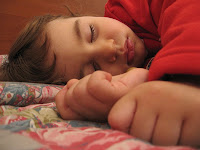This blog has moved to a new website
Nutrition, Health & Wellness
Doing something ritualistic like hearing to music, reading, warm bath or light snacks daily can help in getting sleep. Even after 15 minutes if you are not asleep, get out of the bed and do something relaxing. Better use living room for all other daytime activities and reserve bedroom only for going to sleep.
Do not watch TV, read, write, eat, play games or do telephonic conversations from the bed. Wake up early in the morning and adjust your going to bed accordingly to have a good eight hours sleep. Avoid naps in the afternoon and if at all you require to take one, do not sleep for more than an hour and have the nap in the early afternoon.
Do not take alcoholic beverages at least 4 to 5 hours before your bedtime. Do not take heavy meals in the evening and do not go to bed with an empty stomach.

Do not exercise vigorously in the evening and give a gap of at least four hours before bedtime. Do not smoke before bedtime and also do not take anything stimulating like coffee or tea before bedtime.